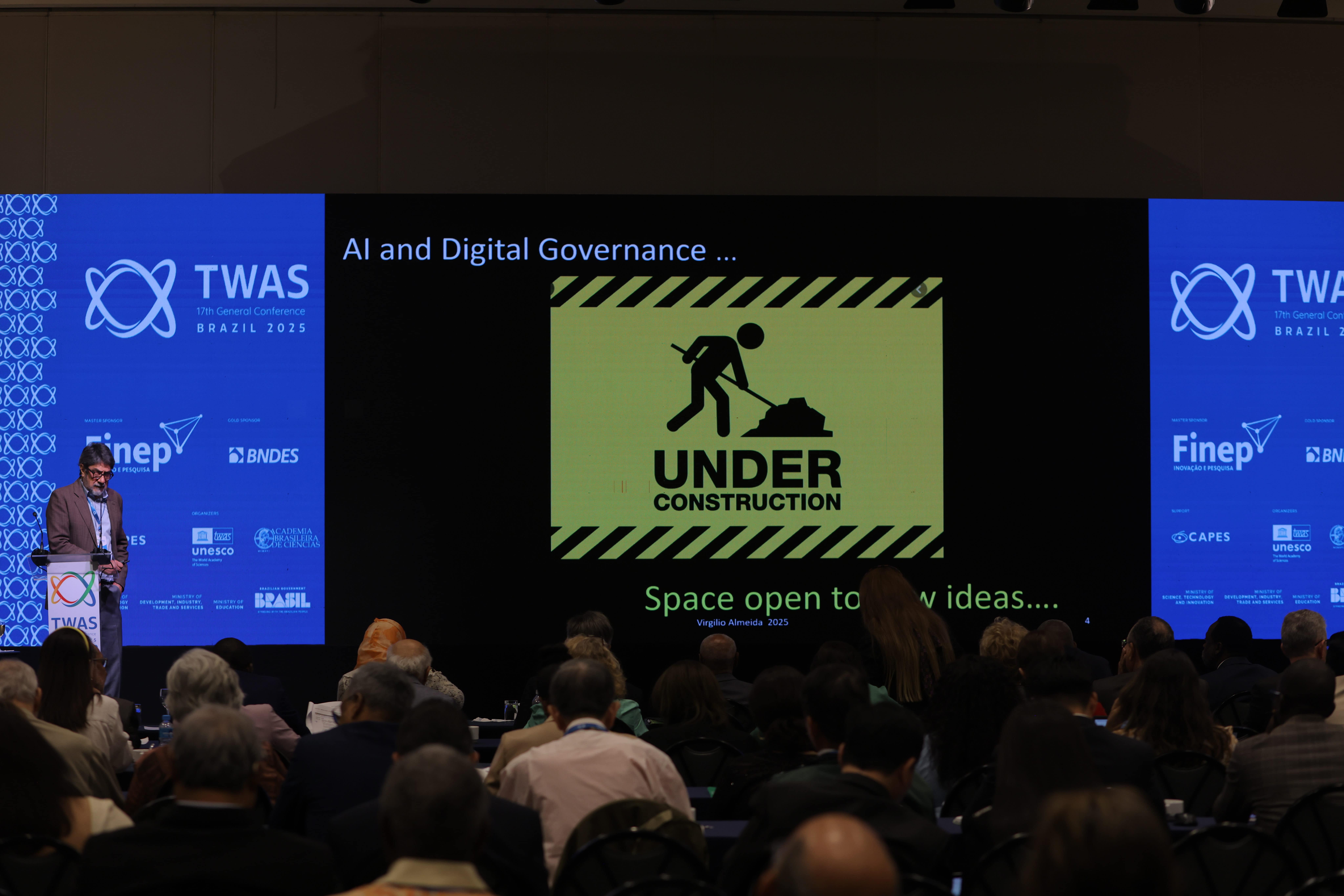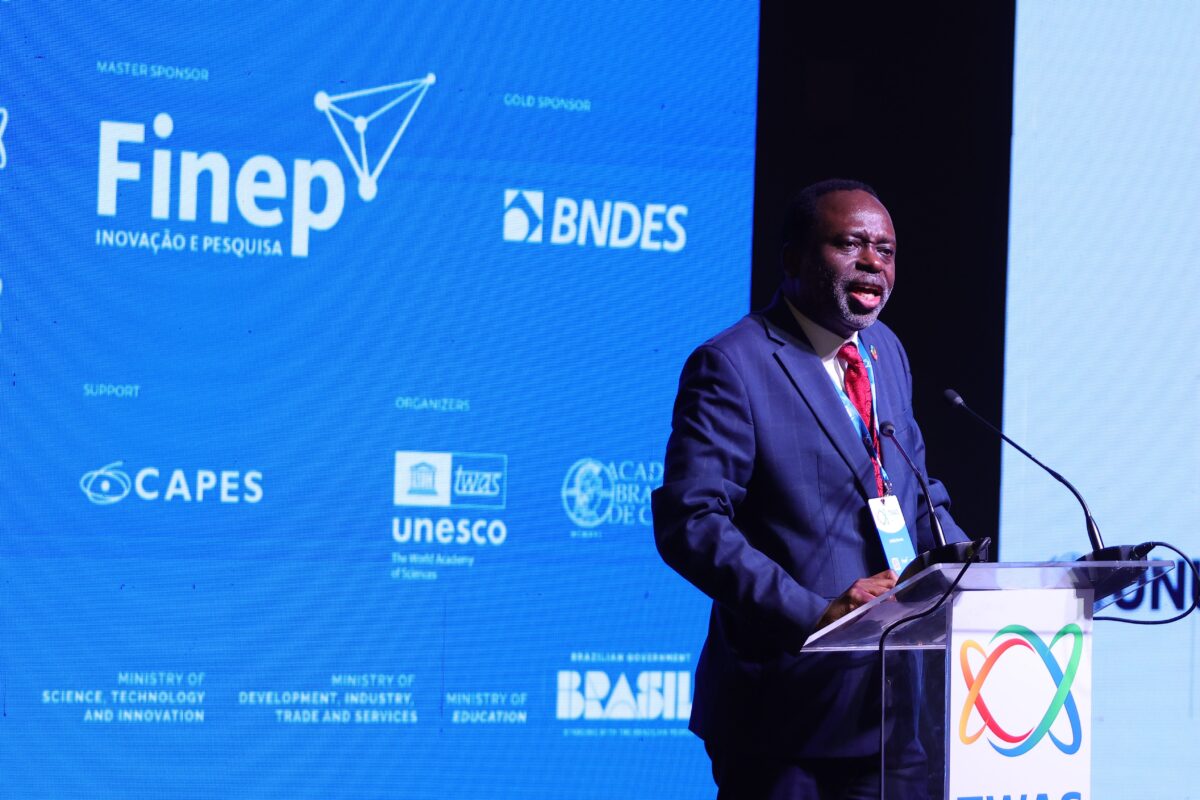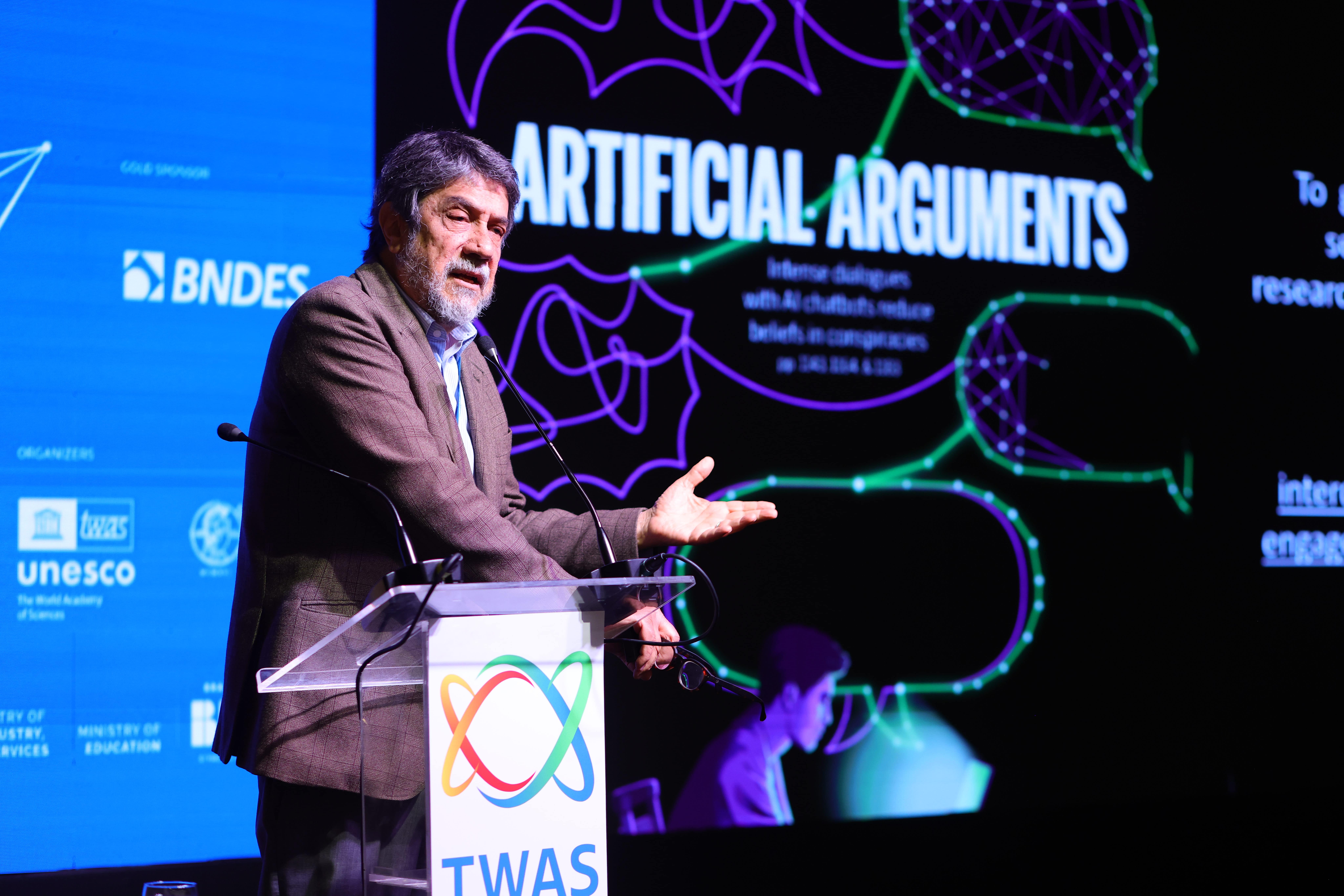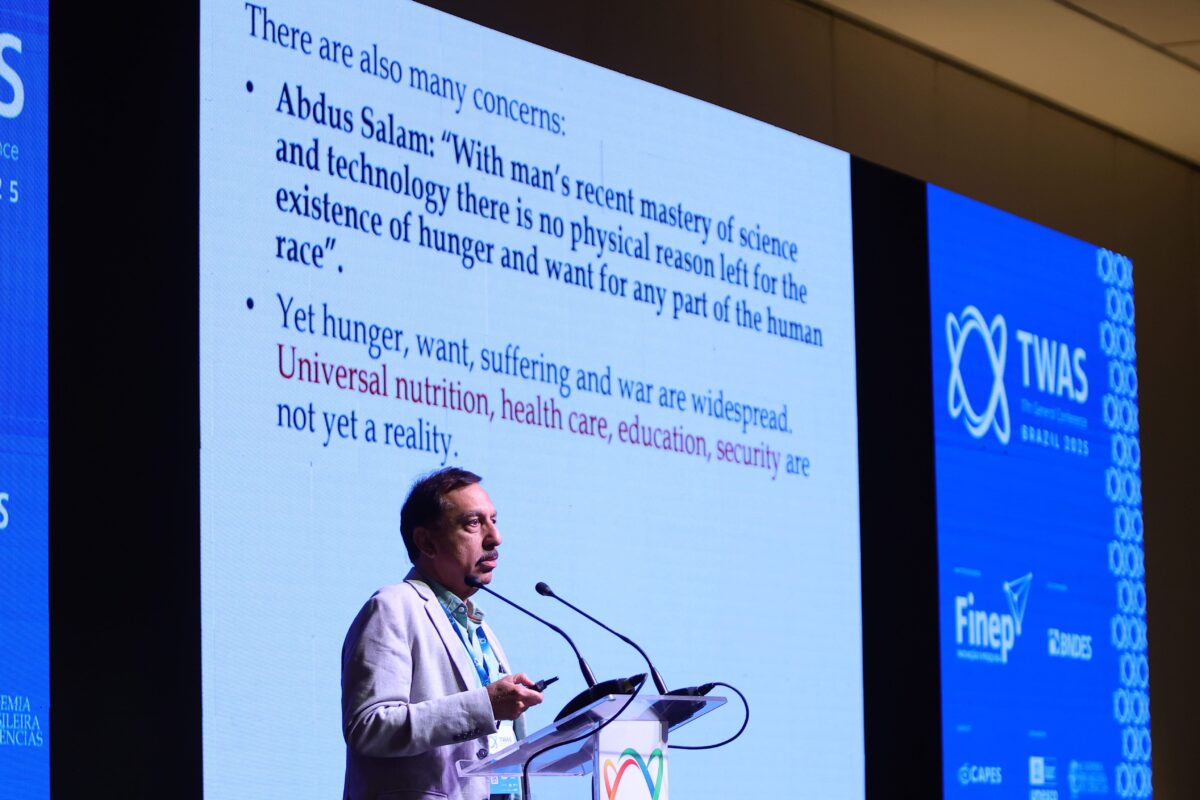 #News
#News
AI may worsen inequalities in the Global South, warn scientists
Specialists at the 17th TWAS General Conference highlight the risks of a lack of infrastructure, dependence on other countries, and technological concentration
 The debate on the limits and opportunities of artificial intelligence marked the second day of the 17th TWAS General Conference in Rio de Janeiro | Image: Mário Marques / Brazilian Academy of Science
The debate on the limits and opportunities of artificial intelligence marked the second day of the 17th TWAS General Conference in Rio de Janeiro | Image: Mário Marques / Brazilian Academy of Science
Artificial Intelligence (AI) is advancing at breakneck speed, but governments still seek ways to regulate its impacts. In low- and middle-income countries in what is known as the Global South, the challenge is even bigger: scant infrastructure and technological dependence on other countries increase the risks of exclusion and inequality.
This was the theme for the second day of debates at the 17th General Conference of The World Academy of Sciences for the Advancement of Science in Developing Countries (TWAS), held from September 29 to October 2 in Rio de Janeiro.
TWAS has its headquarters in Italy and is associated to the United Nations Educational, Scientific, and Cultural Organization (UNESCO).
The gathering, organized in partnership with the Brazilian Academy of Science (ABC), brings together authorities and more than 300 scientists from around the globe to discuss scientific cooperation and solutions to current challenges, such as AI and climate change.
“Technology is evolving very quickly, so we need to keep control of it,” said computer scientist Virgílio Augusto Fernandes Almeida, a professor at the Federal University of Minas Gerais (UFMG) and coordinator of the TWAS Latin America and Caribbean regional office (TWAS-LACREP).
Almeida pointed out that AI, as a complex algorithmic system, is already shaping the economy, politics, and global geopolitical power. The key governance challenge is the “pace gap”—the speed of innovation exceeds the capacity of governments to create suitable public policies.
“Part of the problem is that on an individual level, the impacts appear to be subtle and spread out,” says Almeida. “Algorithm-driven political content may not cause any great harm to an individual person, but on a macro scale the consequences of these local interactions become visible.”

Access to infrastructure
According to the researcher, although governments control their physical territories in the Global South, the control of digital territories is concentrated on a handful of large platforms, which are often far removed from local decisions.
Almeida also points out that this monopoly deepens digital inequality.
Along the same lines, South African AI engineer Tshilidzi Marwala, dean of the United Nations University (UNU), highlighted that this concentration also occurs with infrastructure.
“Access to high performance computing is a big problem in the Global South,” said Tshilidzi Marwala.
“When I worked in the region I had to resort to providers such as Amazon Web Services to carry out complex calculations, and that is very expensive. We need to create platforms that allow access to that kind of infrastructure.”
The issue, though, is not just infrastructure. Exclusion also features in the manner in which technology is conceived. Marwala reminded delegates that most large language models (LLM) are trained in English, leaving underrepresented languages behind, which generates bias and deprives local cultures of visibility.

New tool, old dilemmas
Physicist Sunil Mukhi, a professor at the Indian Institute of Science Education and Research (IISER) in Pune, western India, warned of the structural dimension of these challenges.
He believes that AI should not be viewed as an automatic solution to historical inequalities, because it tends to reproduce existing social patterns.
“Universal nutrition, health, education, and security are yet to become a reality. This is a cause for concern, because AI is a new technology, but we didn’t do much with the old ones. It is just a tool, not an independent agent,” he added.
In the view of the panelists, the debate on ethics is coming to the forefront in the AI era. If, as Mukhi says, technology reflects the values of who designs it, then it becomes important to define which principles should guide its development.
Ethics in AI
The UNU’s Marwala argued that human rights function as a common basis to evaluate data, algorithms, and applications.
Almeida added that such construction needs to be multidisciplinary, bringing together computer scientists, legal professionals, philosophers, and specialists in social sciences and humanities to anticipate risks and reduce biases.
“I think it is exactly at this point that philosophy becomes important, because ethics originate from the way we want the world to be, and there is no consensus on that,” observed Mukhi. “A philosophical discussion in this sense is essential,” he went on.

It was in this context that the proposal arose to create a global AI code of conduct, possibly led by the UN.
The idea reinforces the importance of international cooperation—the scientists warn that without common arrangements, low- and middle-income countries will continue on the periphery when the rules that will shape the technological future are defined.
Conflicts of values
Brazilian Virgílio Almeida emphasized the need to develop “Responsible AI,” guided by four central principles:
- Justice;
- Responsibility;
- Transparency;
- Inclusion.
The UFMG professor says that these aspects need to steer public policies and technological development for the benefit of society.
However, as Marwala said, even values considered to be consensual may enter into conflict, and regulating AI requires that these issues be dealt with explicitly.
“AI needs to be transparent and safe,” Marwala stressed. “But transparency comes at the cost of safety: the more transparent, the less safe. Deciding how this balance will be is ultimately a question of values,” he said.
“Another essential value is the truth. AI should be truthful, but it is only accuracy that you hear about in laboratories and classrooms, and accuracy is not synonymous with truth,” said Marwala.
For the panelists, AI governance does not depend solely on technical specialists, but also on increasing digital and algorithmic literacy, especially among policy formulators and decision-makers.
This means that it is not just about qualifying programmers, but ensuring that governments understand the social, economic, and ethical impacts of the technology they seek to regulate.
These efforts also include formulating incentives for responsible AI use, in contrast with the predominant logic of maximizing profits exercised by the big platforms.
The debate is linked to a wider agenda; Almeida sees responsible AI as not only a question of regulation, but a strategic instrument for science, innovation, and inclusive development in the Global South.
*The Science Arena team attended the conference at the invitation of TWAS.
*
This article may be republished online under the CC-BY-NC-ND Creative Commons license.
The text must not be edited and the author(s) and source (Science Arena) must be credited.


